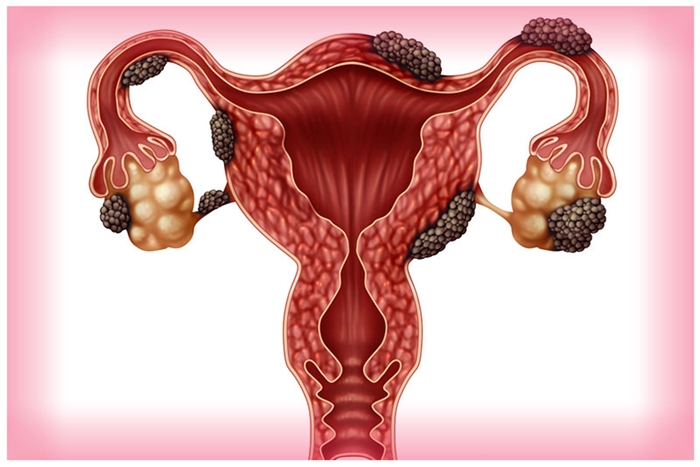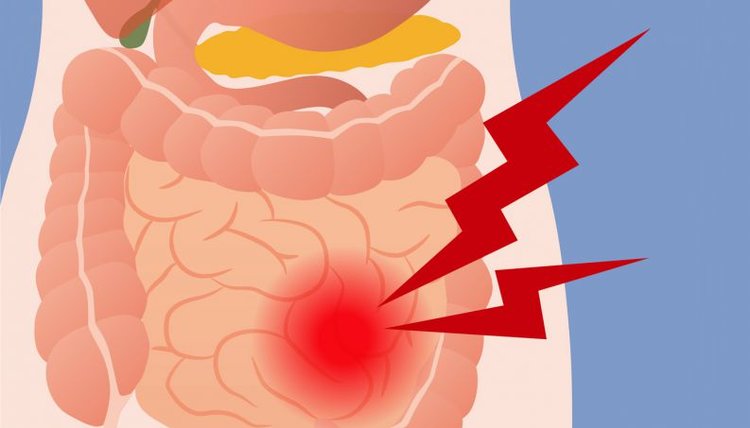You may have heard the word endometriosis, but what is endometriosis? It is a disorder that occurs when the endometrial, the tissue similar to the lining inside the female’s uterus, starts to grow outside the womb. The endometrial tissue acts just like the same uterine tissue and performs the same function, i.e., break down and bleed at the end of the cycle. But the blood doesn’t find any place to go because of its abnormal growth in the other areas. The surrounding area of this tissue becomes swollen or inflamed. Women are more likely to develop endometriosis in ovaries. In America, it affects around 11% of women age between 15 and 44. It is more common in females aged 30 to 40.
Endometriosis
Endometriosis Symptoms
The following are the endometriosis symptoms, which can be very painful for women.
1. Long Duration of Periods
Excessive bleeding is the most annoying and painful endometriosis symptom. Women should have periods not longer than six days, and the seventh day is usually the last day of the cycle. But in this health problem, the menstrual period may extend for over a week.
2. Extremely Painful Periods
Extremely Painful Periods
It’s not normal if you are having pelvic pain after two days during your menstrual cycle. You cannot counter this severe pain and cramps with painkillers, and remedies also don’t usually save you from this pain. It’s better to contact your health specialist for diagnosis; early diagnosis can help relieve the symptoms of the disorder better.
3. Bowel Movements
Bowel Movements
Endometrial tissues can get stick to the bowels, which makes your life more painful, especially during a menstrual period. You will experience excruciating pain with bowel movements and urination. Bowel endometriosis symptoms can vary from person to person, and it includes intestinal cramping, diarrhea, nausea, rectal pain, and rectal bleeding.
4. Trouble in Sex
Trouble in Sex
Painful sex is the most common symptom of this tissue disorder. Movements like penetration, related to intercourse, can disturb endometrial tissue, especially if it’s near or behind the lower uterus or vagina. However, painful sex doesn’t always mean that you have endometriosis; it is better to visit your doctor for a diagnosis.
5. Struggles to Get Pregnant
Struggles to get Pregnant
If you are struggling to get pregnant, then endometriosis can be a cause of your problem. Women with endometriosis also have a higher risk of infertility. This is because endometriosis tissue can develop on reproductive organs, such as the ovaries or fallopian tubes. The tissue growth in these parts prevents sperm from traveling towards the eggs or blocks the path of fertilized eggs, which are going towards the uterus.
Bottom Line
In a nutshell, taking your menstrual problems lightly is not a great idea. If you have any of the endometriosis symptoms, then you need to consult your doctor.





